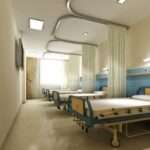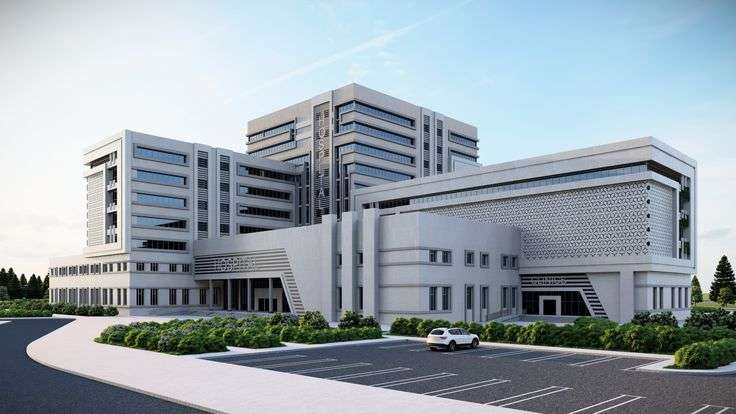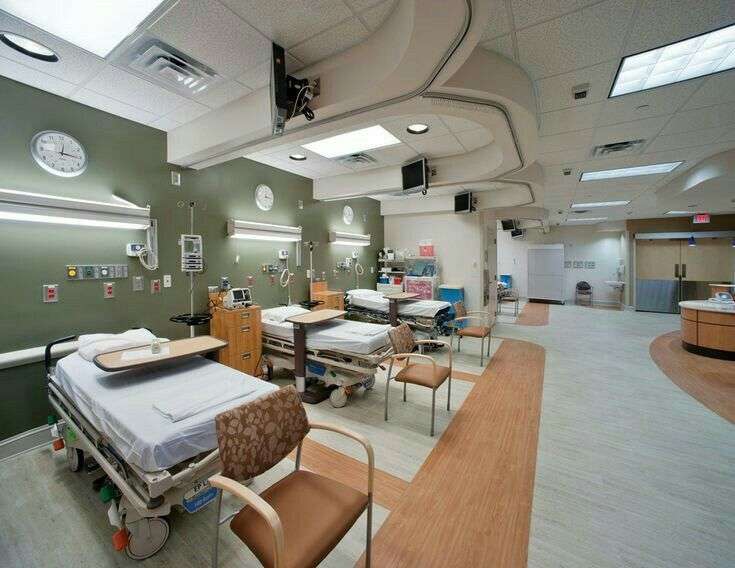
Hyderabad Healthcare: Meeting the Demands of a Booming City
June 26, 2024
Hospertz Pioneers New Way of Healthcare Design: A Beginner’s Guide
July 2, 2024The landscape of nursing homes is rapidly evolving, with new trends and challenges shaping the way care is delivered. For those looking to build a successful nursing home, understanding these trends is crucial. From technological advancements to regulatory changes, here’s a comprehensive guide to help you stay ahead in the industry.
Rising Demand for Nursing Home Services
- Aging Population Dynamics With the global population aging rapidly, the demand for nursing home services is surging. By 2030, one in six people will be over 60, necessitating more long-term care facilities that provide comprehensive, round-the-clock care.
- Increasing Chronic Health Conditions The rise in chronic health conditions like diabetes, heart disease, and dementia further underscores the need for specialized nursing home care. These facilities are essential in managing these conditions effectively.
Technological Advancements in Nursing Homes
- Telehealth and Remote Monitoring Telehealth and remote monitoring technologies are revolutionizing care in nursing homes. These innovations improve access to healthcare professionals and allow for continuous monitoring of residents’ vital signs, ensuring timely interventions.
- Smart Home Integration Smart home technologies enhance the quality of life for residents by offering automated lighting, climate control, and voice-activated assistants. These tools also help staff maintain a safe and comfortable environment.
Person-Centered Care Models
- Customized Care Plans Person-centered care, which tailors care plans to individual needs, is becoming the standard. By considering residents’ personal histories, lifestyles, and health conditions, nursing homes can provide more effective and compassionate care.
- Emotional and Social Well-being Nursing homes are prioritizing activities that promote social interaction, mental stimulation, and emotional support, improving residents’ overall quality of life and health outcomes.

Regulatory Changes and Compliance
- Updated Health and Safety Standards Staying compliant with evolving health and safety standards is essential. This includes adhering to infection control protocols, safety regulations, and staffing requirements to ensure high-quality care.
- Licensing and Certification Requirements Meeting various licensing and certification requirements is critical for legal operation and maintaining a good reputation. These standards cover facility operations, staff qualifications, and resident care.
Sustainability and Eco-Friendly Practices
- Green Building Initiatives Sustainability is a growing priority. Green building initiatives aim to create environmentally friendly and energy-efficient nursing homes, using sustainable materials and renewable energy sources.
- Waste Management and Energy Efficiency Effective waste management and energy efficiency practices not only reduce environmental impact but also lead to cost savings, making operations more sustainable.
Staffing Challenges and Solutions
- Recruitment and Retention Strategies Attracting and retaining qualified staff is crucial. Offering competitive salaries, comprehensive benefits, and a positive work environment helps maintain a skilled workforce.
- Training and Professional Development Ongoing training and professional development ensure staff are up-to-date with the latest care practices, technologies, and regulatory requirements, enhancing job satisfaction and retention.
Financial Management and Funding
- Budgeting and Cost Control Effective financial management involves careful budgeting and cost control measures. Monitoring expenses and revenues helps identify areas for improvement and ensures financial health.
- Funding Opportunities and Grants Exploring various funding opportunities and grants can provide additional resources for facility improvements and innovative practices.
Community Engagement and Reputation Management
- Building Trust with Families Building trust with residents and their families through transparent communication and consistent care quality is essential. Engaging families in care decisions strengthens these relationships.
Diverse Care Options
- Memory Care Units Specialized memory care units cater to residents with Alzheimer’s and other forms of dementia, offering tailored activities and therapies to enhance cognitive function and quality of life.
- Short-term Rehabilitation Services Offering physical, occupational, and speech therapy helps residents recover quickly from hospital stays, improving overall outcomes and satisfaction.
Emergency Preparedness and Crisis Management
- Developing Response Plans Comprehensive response plans for emergencies ensure the facility is prepared to act swiftly and effectively, protecting residents and minimizing risks.
- Training Staff for Emergencies Regular training in emergency procedures and crisis management ensures all staff are ready to respond appropriately in emergencies.
Cultural Competence in Care
- Understanding Diverse Needs Cultural competence in care is vital. Recognizing and respecting cultural differences in health beliefs and practices create a more inclusive and effective care environment.
- Integration of Comfort care Palliative and hospice care should be personalized to align with patients’ cultural values and beliefs, ensuring compassionate end-of-life care.
Future Outlook for Nursing Homes
Looking ahead, nursing homes must continue evolving to meet the growing cultural diversity of their residents. Ongoing staff education, culturally tailored care practices, and fostering an inclusive environment will be increasingly important. Hospertz Healthcare Consultancy specializes in building hospitals and nursing homes that meet the highest standards of care. Stay ahead in the industry by understanding and integrating these key trends.




